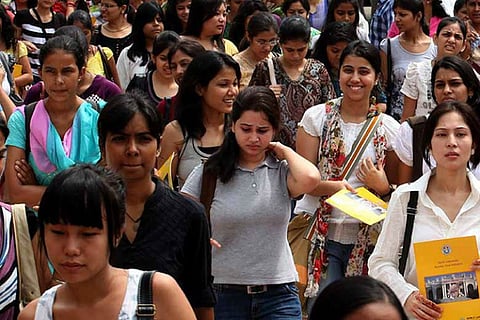

The Vyas family from Mumbai went through a harrowing experience after their son, who was studying abroad, passed away in the most unexpected circumstances recently. Their son, who went to do his undergraduate degree in the United States, called 911 after experiencing symptoms of coronary thrombosis or a blood clot in the blood vessels of arteries of the heart. While an emergency medical technician (EMT) crew attended to his call, his care did not continue after their visit.
This incident has spotlighted an issue that few pay attention to when considering study abroad options.
Students and their parents usually pore over course details, visa forms, loans, and post-study options, but seldom take note of other important matters such as health, emergency, and hospitalisation. This is because many believe that youngsters are unlikely to face health emergencies or that an international university will take care of such situations.
With around 5 lakh Indian students going abroad to study every year, the Vyas family hopes this incident will be a wake-up call for other families so they may not face a similar plight.
The Vyas family put together a list of things for students and parents to consider before going abroad to study. This list was based on their learnings and discussions with other parents, and is not medical or legal advice:
Familiarise yourself with privacy laws and their impact, such as the Health Insurance Portability and Accountability Act (HIPAA) in the United States, and similar laws in other countries.
Understand processes like ‘Against Medical Advice’ (AMA) and never sign such forms without consulting family members or trusted individuals who comprehend the implications. For instance, in most cases, the process of AMA becomes relevant in India after a patient has been hospitalised, especially when the patient opts to terminate their ongoing treatment or transfer to a different medical facility. Conversely, in the United States, the first responders might request your signature on the AMA form. Don’t try to rush through the process, take your time. It's important to note that these processes may vary by state and country.
Gain a thorough understanding of your insurance plan, ensuring that its limitations do not impede your access to necessary medical care.
Unlike in India, the primary responders in medical emergencies are often paramedics rather than doctors. If you have any doubts, insist on seeing a qualified physician or request hospitalisation. Taking these precautions can help eliminate potential emergency situations.
If needed, clearly communicate your status as an international student and freshman to the medical emergency provider, and inform them that you will need active support to manage the process and would be okay to inform university officials, friends, and family members. Involve your university's residential life team, friends, and family in managing the emergency.
During nighttime medical emergencies, avoid staying alone. Stay with friends or proceed to a hospital, depending on the nature of the emergency.
Your university may not be well-equipped to handle many emergencies. Familiarise yourself with your university's medical emergency procedures, their role and accountability, and third parties involved in managing the medical emergency. If necessary, review campus safety and past records of medical incidents. When in doubt, ask the university official for details and even request very specific details like standard operating procedures and policy documents. Check how to equip their processes to support international students from different cultural backgrounds.
Understand the layers involved in managing medical emergencies, as multiple entities may be involved, including the university department, county/state emergency service providers like AMR, emergency rooms, hospitals, and more. Keep your family informed about the process.
Never ignore any symptoms based on your age or overall good health, especially chest pain or any heart-related symptoms in post-COVID situations
Before departing for your overseas studies, undergo proactive checkups to address any potential health concerns.